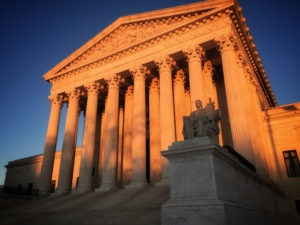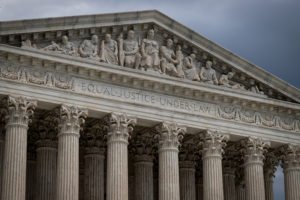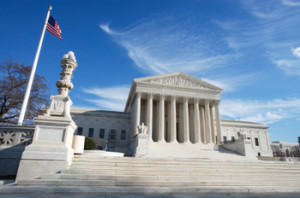The Ambiguity in Judge Kavanaugh’s Chevron Critique
Judge Kavanaugh’s views on Chevron may create more uncertainty than exists under the current doctrine.
Kavanaugh and the Deference Doctrines
Judge Kavanaugh’s past opinions reveal a commitment to clarifying deference rules and increasing predictability.
Judge Kavanaugh’s Activist Vision of Administrative Law
In his D.C. Circuit cases, Judge Kavanaugh tends to disfavor most agency interpretations of statutes.
Judge Kavanaugh, Chevron Deference, and the Supreme Court
If confirmed, Judge Kavanaugh would likely support narrowing Chevron’s scope.
Judge Kavanaugh and Administrative Law
What would Judge Kavanaugh’s confirmation mean for the U.S. Supreme Court’s administrative law decisions?
Shunting Aside Chevron Deference
The Supreme Court’s most recent term suggests that some justices would revise the doctrine of Chevron deference.
Chevron and Net Neutrality at the FCC
Net neutrality has “bounced” from regulation to repeal under an often-used administrative law doctrine.
Scrutinizing Deference to Administrative Agencies
Scholar evaluates arguments for scaling back deference doctrines in light of renewed interest in reform.
Revisiting Deference to Agencies in Criminal Deportation Cases
Scholar argues against using agency interpretations of immigration law in criminal deportation cases.
A Reply to Professor Amy Sinden’s Critique of the “Cost-Benefit State”
Cost-benefit analysis is the most preferable form of analysis, and it should continue to be employed for important regulatory decisions.
A Debate Over the Use of Cost-Benefit Analysis
Previously published essay on The Regulatory Review sparks debate over the role that cost-benefit analysis should play in regulatory decision-making.
Courts Regulating the Regulators
Recent cases and proposed legislation reveal decreasing deference to agencies’ interpretation of their own regulations.












